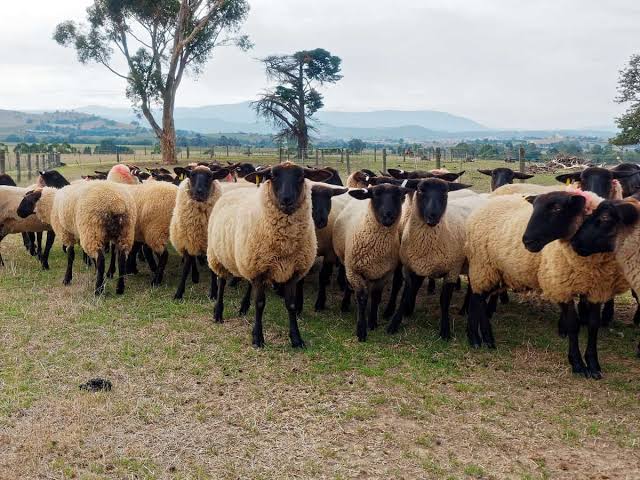When it comes to quitting jobs, not many would want to quit top managerial roles for farming. But for Bernard Njaramba, farming was a passion he couldn’t abandon.
Njaramba left employment at Telesis, a telecommunication company in Tanzania, where he served as the chief executive officer, to venture into exotic Dorper sheep breeding.
His 40-acre Amagoh Dorpers stud in Machakos County hosts dozens of different sheep breeds. Njaramba started with indigenous sheep and goats but realized they took too long to mature and could not fetch good money.
He decided to divert to Dorper sheep breeding, driven by the zeal to make a kill in the most sought animals in the country.
Isaac Kosgei: Farmer shows off his South African Dorper sheep worth Sh. 200,000 each
“I couldn’t get more than Sh3,000 from an indigenous sheep and goat. With zeal to succeed, I decided to buy two Dorper breeding lambs from a farm in Nakuru for Sh25,000 each, ready to cross-breed my flock,” recalls Njaramba.
The encouraging breeding results prompted him to invest in Dorper breed research for better yields. To him, most farmers in Kenya relied on veterinarians for advice, but he realized that farm managers had the much-needed knowledge.
“My research took me to several local Dorper sheep farms before going to South Africa for the best Dorper genetics sought by the world’s best breeders. I was looking for the best sheep that guarantee higher yields,” he added.
After thorough research, Njaramba imported seven pregnant ewes and three breeding lambs that later multiplied to a flock of 450 breeding ewes.
According to him, Dorper sheep are good grazers and grow fast, reaching the market weight quickly. They also have good mothering traits and are drought-resistant.
Dorper Sheep: A Highly Profitable Venture That No One Talks About
An eight-month lamb weighs between 45 to 50 kilograms, while a mature ewe can weigh between 100 to 115 kilograms.
Njaramba sells a purely South African four months weaner ram for Sh70,000, while a four-month-old weaner ram sired by a South African breeding ram goes for Sh20,000.
A four-month-old weaner ewe goes for Sh18,000, and fat rams for mutton sell at Sh15,000. He noted that imported Dorpers face unique challenges, including adaptability to new climates, diseases, and pests uncommon in their original country.
The farm keeps each new flock of sheep for only two years and restocks to avoid in-breeding and reproduction during extremely dry periods.
Making money from sheep farming: from birth to the market
On diseases, Njaramba noted that sheep are prone to worms and recommended drenching the animals before breeding.
He advised farmers to insure their animals to mitigate losses such as deaths and theft. Njaramba, who is a registered member of the Dorper Sheep Breeders Society of Kenya, also encouraged Kenyans to adopt farming as their economic mainstay.
“I want to demystify the notion that animal rearing is a backup plan for employed people or an activity for unlearned people back in the villages. Farming ought to be embraced as a career,” he said.









